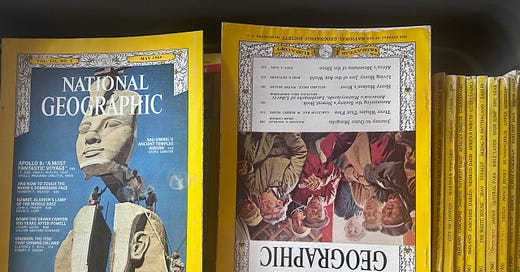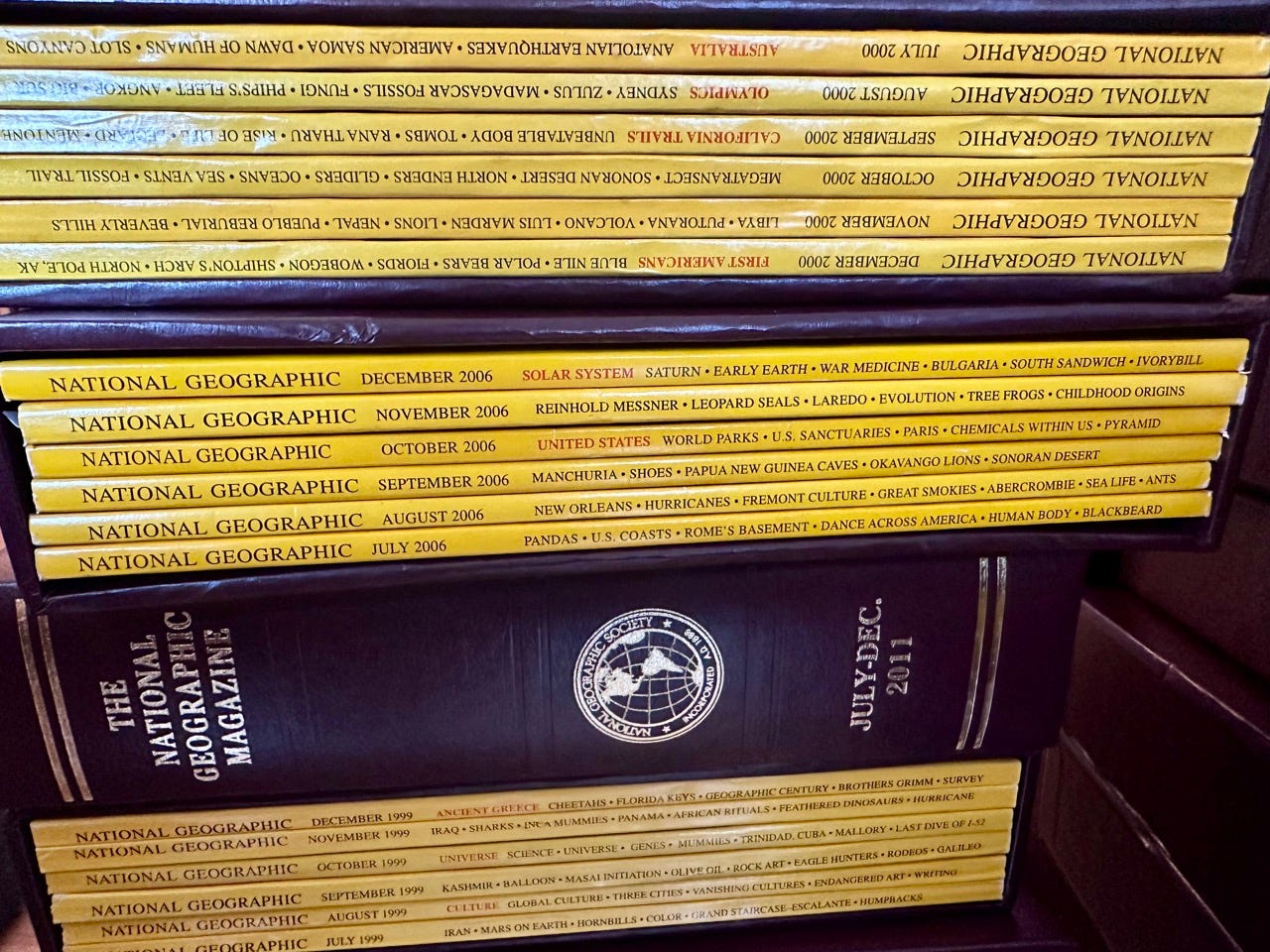All the World's Knowledge, Whitman, Gulags, and the Promise of Laughter
I’d imagined I might inherit the hundreds of National Geographic magazines that lined my grandparents’ basement in Washington. But they went elsewhere (I got the pachinko machine!), and my dreams of a yellow-spined wall faded.
A few days ago, some friends were cleaning out their parents’ house and mentioned to my wife some Nat Geos bound for the trash. Soon she sent me a photo: five decades of back issues stacked in our living room.
It’s like having Wikipedia printed out, piled up, and burying the coffee table. And frankly: I was in it for the spines.
Where to start?
A lonely Reddit thread suggested March 1982 (holograms!), December 1992 (volcanos!), and April 2004 (tornados!). On top of one pile: July 2001—Treasure, Grizzlies, Marco Polo, Sprawl, Cuba Gold, Delacroix, LA. Good enough.
Here’s what else has captured my attention the last few days. -Adam
I picked up McSweeney’s edition of Walt Whitman’s Leaves of Grass, which includes handwritten ephemera. I opened it and thought where do you start with Whitman? Maybe I needed a little context? I checked one of multiple National Geographic indexes and pulled the December 1994 issue for context
Elif Batuman’s profile of Japanese novelist Sakaya Murata grows stranger by the sentence. I told Ted to drop everything and read it. His take tracks: “She’s like the love child of Murakami and those people who fall in love with roller coasters.”
I’ve long admired Batuman, especially The Possessed: Adventures With Russian Books and the People Who Read Them and her eassy “Short Story & Novel,” which I often share.
From Timothy Snyder: “Yesterday the president defied a Supreme Court ruling to return a man who was mistakenly sent to a gulag in another country, celebrated the suffering of this innocent person, and spoke of sending Americans to foreign concentration camps. This is the beginning of an American policy of state terror, and it has to be identified as such to be stopped. […] A simple way to escape from law is to move people bodily into a physical zone of exception in which the law (it is claimed) does not apply. These spaces are concentration camps.”
That reminded me of Andrea Pitzer, who we’ve talked about on the podcast. She wrote a history of concentration camps and a book on Nabokov. On Kilmar Abrego Garcia’s detention, she writes: “Trying to imagine a human being rendered to the most dangerous place he could be sent, and a brutal government acknowledging it had messed up but claiming it was too late to do anything about it made me think of Nabokov’s novel Bend Sinister. […] This story of a professor bullied by a totalitarian government has long haunted me because of one aspect of life under tyranny it evokes perfectly: malicious incompetence."
There’s a gripping new This American Life episoden about a Native American family fighting for justice in Montana and trying to balance a personal justice with a justice for all. Devastating.
After that, a laugh: Last One Laughing crams ten British comedians into a room for six hours. No laughing allowed. I’m biased (many Taskmaster alums), but my wife binge-watched it too.
In the bar on vinyl night, I heard Natalia Lafourcade’s De Todas las Flores. Her siren call pulled me to the register to ask“Who is this?” The couple that brought in the record also recommended her Tiny Desk concert.
Episode 226
Ted and I discussed app boredom, book recs, and two newish songs.





